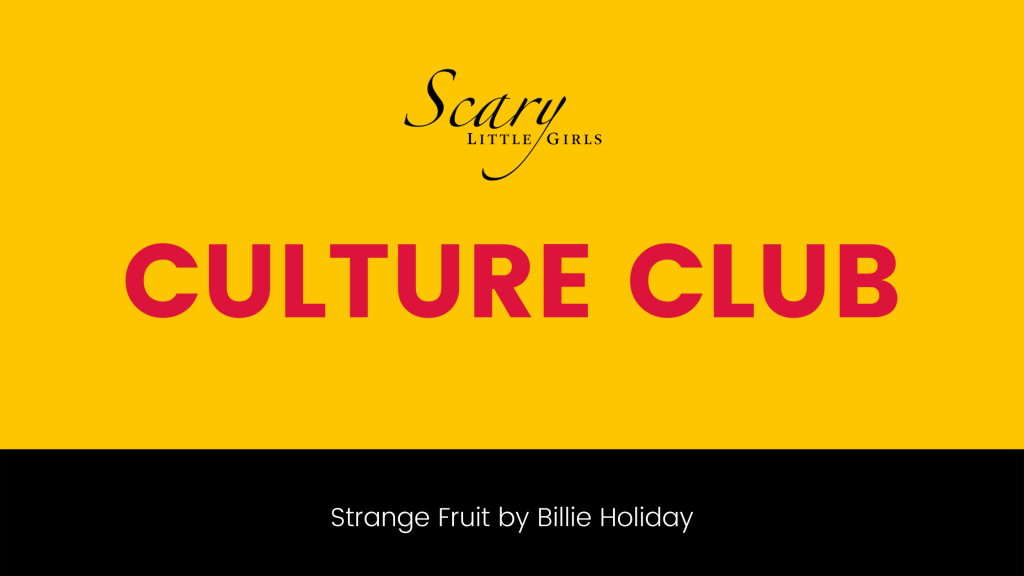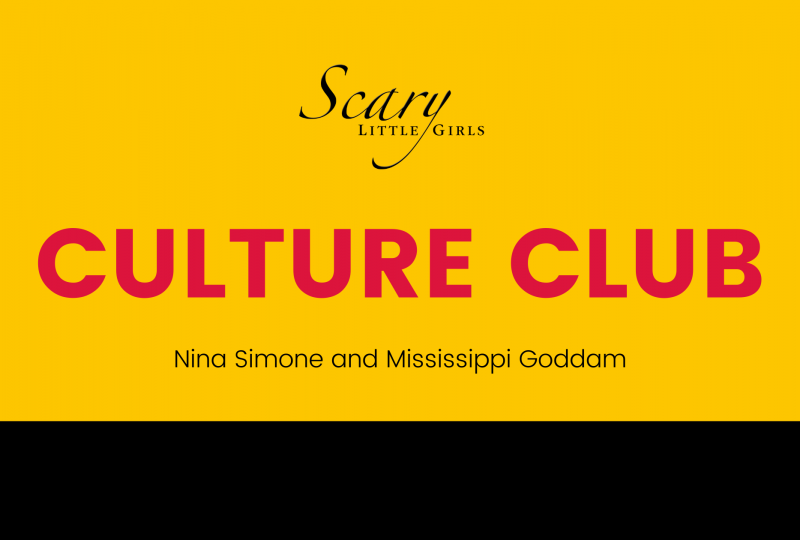
This month in our exploration of texts referred to by Artistic Director Becca in our Salon de la Vie events, we’re thinking about the Strange Fruit that grown on southern trees
This song, originally a poem called Bitter Fruit, was written by Abel Meeropol in the early 1930s and recorded by Billie Holiday in 1939. It protested the lynching of Black people in Southern states of the USA. While many of us know the word – how many of us know what it means?
It means the unlawful killing, usually of a Black or minoritised person, by a white person or, often white people. These killings were often claimed to be punishment for rape or murder, but in reality many were responses to perceived breaches of etiquette.
Wikipedia states, “One study found that there were “4,467 total victims of lynching from 1883 to 1941. Of these victims, 4,027 were men, 99 were women, and 341 were unknown gender (although likely male); 3,265 were black, 1,082 were white, 71 were Mexican or of Mexican descent, 38 were American Indian, 10 were Chinese, and 1 was Japanese.”
Lynchings went on for over a hundred years, from the 1830s to the 1960s – that’s within living memory. You may remember the 60s and if not, you will almost certainly kwon someone who does. It’s shocking – rightly – to realises that this is not long ago. When we fight racism, ally ourselves with those fighting racism, it is important to remember just how recent this is. And we would argue that there are strong links to be drawn between lynchings then and disproportionate police and state violence against people of colour now.
Many – but not all – lynchings were carried out by hanging, hence the title of the song – the Strange Fruit borne in the trees are the bodies of lynched people, hanging aloft, after death.
Originally performed as a protest song by Meeropol’s wife, Strange Fruit was recorded by Billie in 1939. It is a visceral, almost impossibly evocative song, and so unsurprisingly, she had to work hard to find a label – her own label, Columbia, refused to record it, fearing a Southern backlash.
The wheels of progress turn (not as quickly as we’d like) and in 1978, Billie’s recording of the song was inducted into the Grammy’s Hall of Fame. We would encourage you to read about the early performances of the song here – just imagine Billie on stage, a single spotlight, silence – and then her singing. And then remember that she sang this first in 1939. And lynchings were reported until the 1960s. She wasn’t singing about the past – she was signing about real time, contemporary events.
Our friend and associate artist Kudzi Chiwawa closed our Salon de la Vie about Billie in July last year with a haunting performance of Strange Fruit, speaking the words as a poem to a mournful cello in an arranged by another of our associate artists, TJ Holmes. Watch the full Salon here – Strange Fruit itself starts at 25.00. You can also listen to our Spotify Playlist inspired by and including Billie here.
The final word here must go to Lady Day herself.
“You can be up to your boobies in white satin, with gardenias in your hair and no sugar cane for miles, but you can still be working on a plantation.”
Lady Day, Billie Holiday





